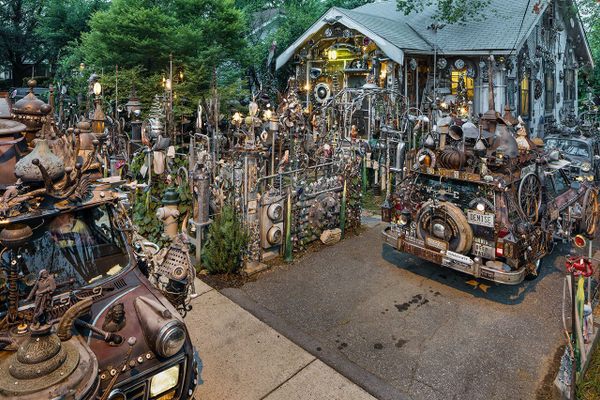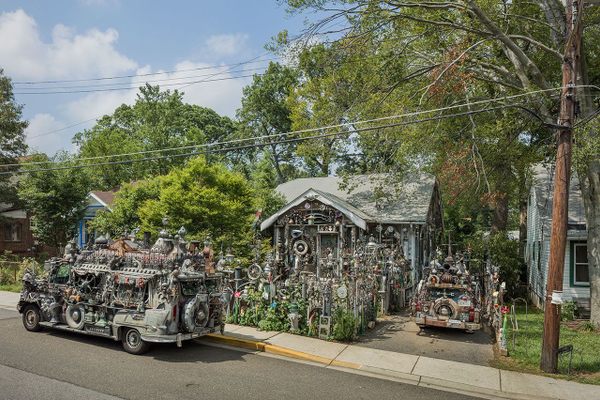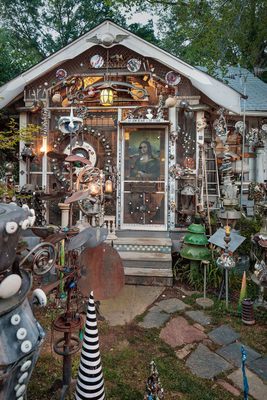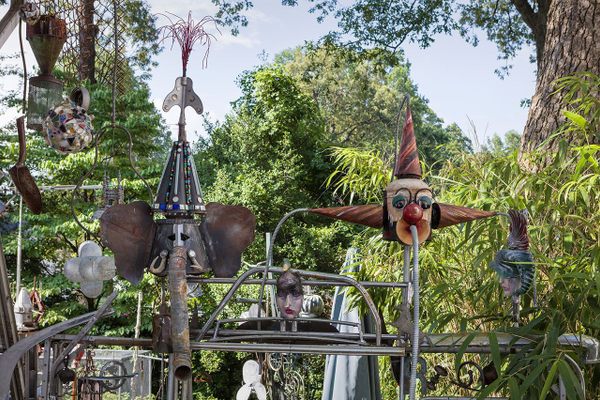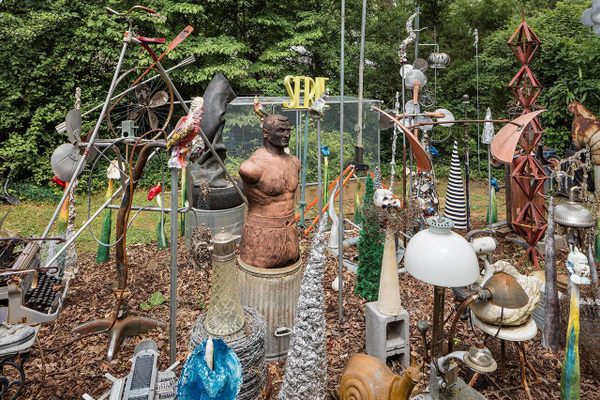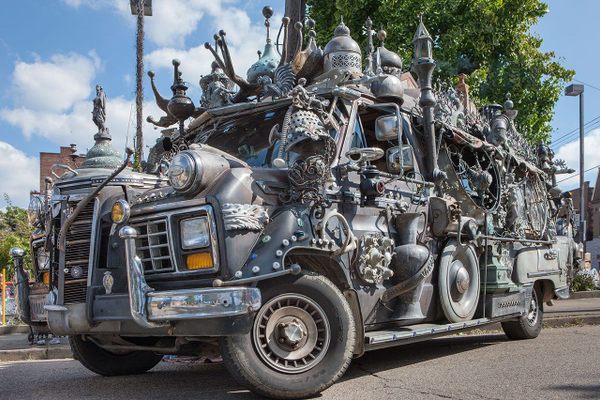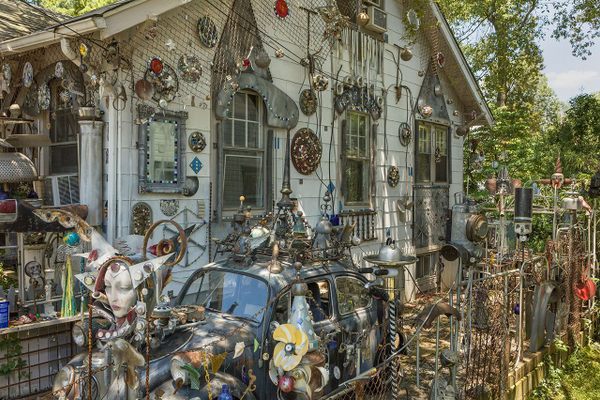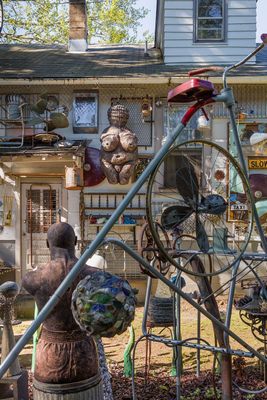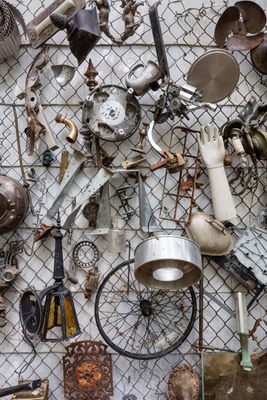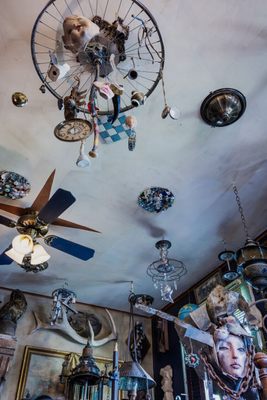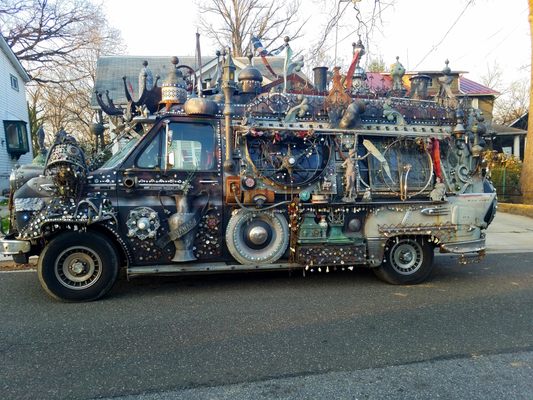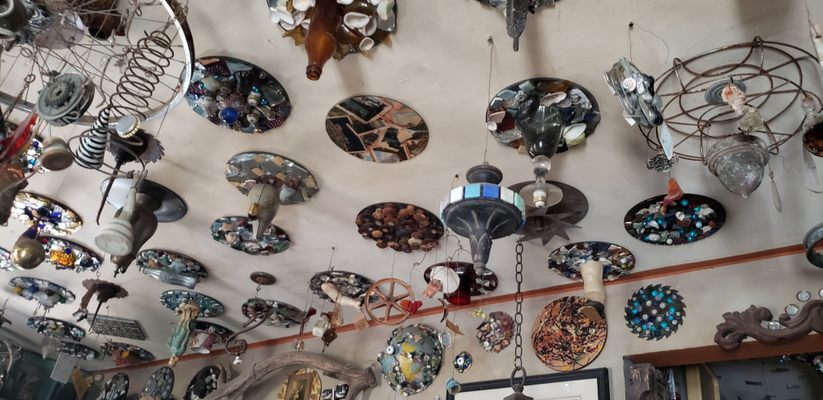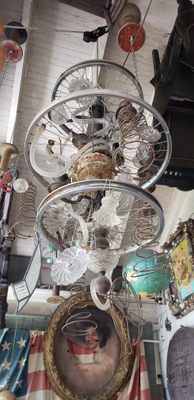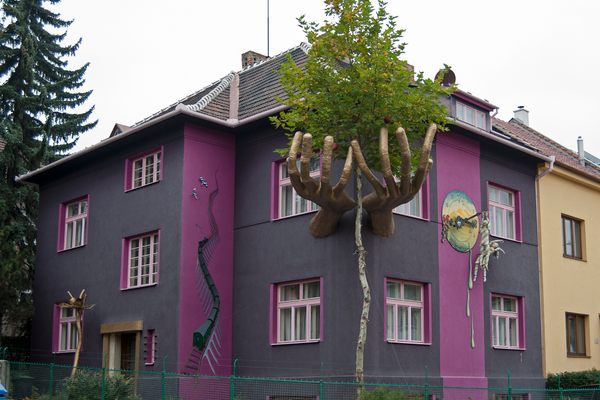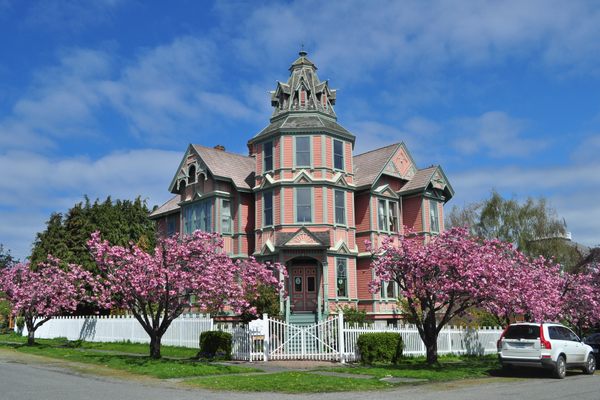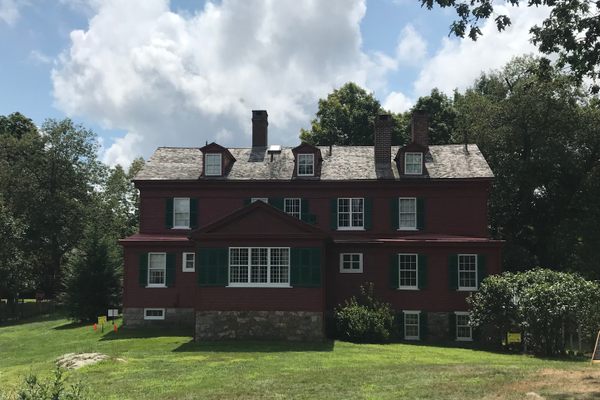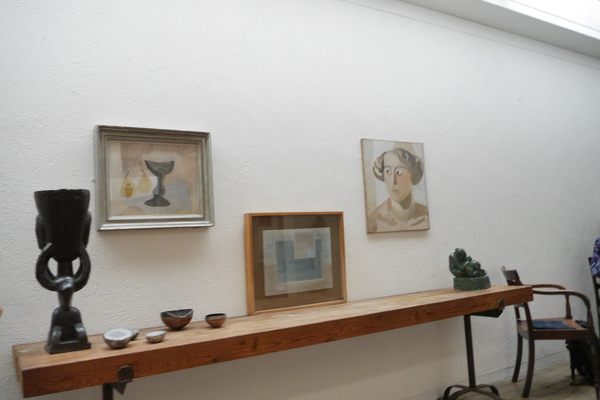About
Many years ago, museum conservator Clarke Bedford found himself alone with time to spare in his plain, mid-sized Maryland abode. From that day forward, Bedford began using all of his energy and heaps of unique objects and recycled metal to construct one of the world’s most hidden, out-of-place, and extravagantly designed art houses.
Known as “Vanadu,” Clarke Bedford’s peculiar art house is filled with a large collection of antiques, junk, and historical objects. Throughout the high-density cluster of sculptures and mosaics you’ll find a horned wooden owl, a black and white striped cone, a skull, a statue of John Locke, a German language globe stuffed inside a rusted horn, and a woman’s face covered in glass and colored fragments of junk.
Clarke Bedford also owns four fully functional art cars, made of everything from car parts to used washing machine pieces and moose antlers, which are typically placed on the curbside of the art house. The most famous car, the traveling Vanadu Ford, features vases and horns on the sides and graveyard spires on the roof, and it even has its own Facebook account. When he was working as a conservator for the Hirshhorn Museum, Bedford would drive one of the elaborate silver cars on his daily commute to work, and to this day the art cars remain one of Bedford's major sources of transportation.
Clarke Bedford’s named his art car and house “Vanadu” to honor the poetry of Samuel Taylor Coleridge, whose famous “Kubla Khan” poem emerged from an opium-induced dream about the ancient Chinese city of Xanadu, once under the rule of Mongol emperor Kublai Khan. In addition to "Vanadu," Bedford also calls his assemblage of recycled materials the Assemblage Cottage, pronounced with a French accent as “As-sem-blage Co-ttage.”
Related Tags
Know Before You Go
The owner is happy to have visitors stroll the grounds and look, all you have to do is ask and say hello.
Community Contributors
Added By
Published
November 28, 2016
